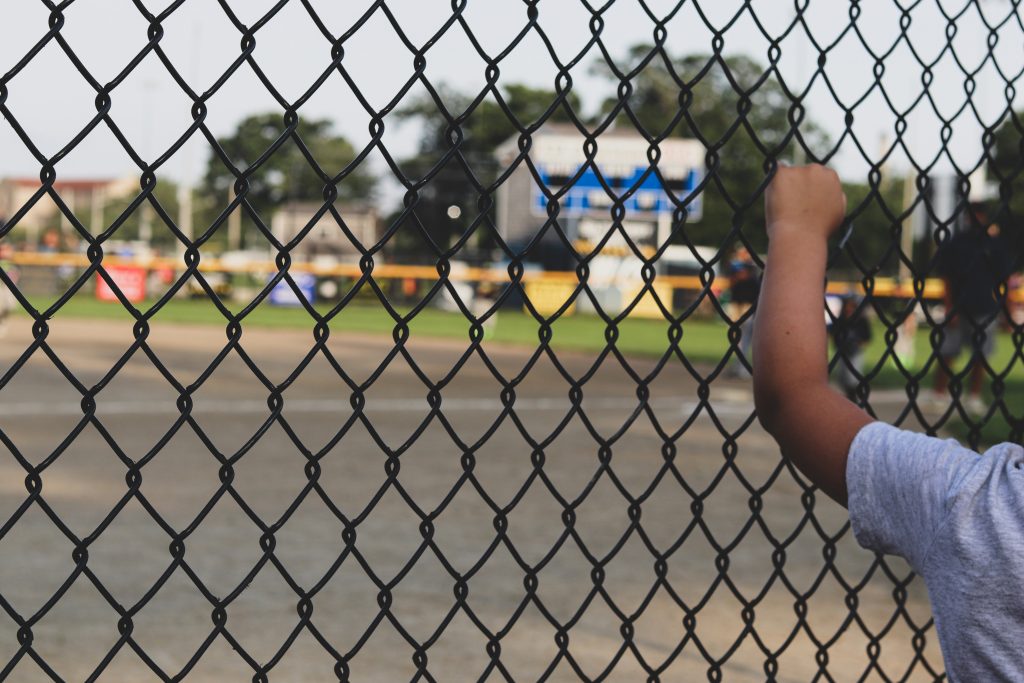
Youth baseball extends beyond a sport to embody personal development, character building, and fostering a spirit of sportsmanship. This beloved pastime instills values of teamwork, discipline, and commitment, serving as a proving ground for the leaders of tomorrow. Balancing competitive success with the core principles of sportsmanship is not always straightforward.
As we commit to excellence, the need to nurture integrity and respect grows ever more critical. Leaders from Cooperstown Dreams Park explore the vital role youth baseball plays in personal development and community building while addressing the ongoing efforts needed to preserve its core values.
The Role of Sportsmanship in Youth Baseball
In the context of youth baseball, sportsmanship is the backbone of a player’s character development. At its core, sportsmanship encompasses respect, integrity, and fair play. These pillars of sportsmanship make youth baseball more enriching for everyone involved.
“The role of teaching sportsmanship falls heavily on the shoulders of coaches and parents,” says a Cooperstown Dreams Park leader. “They are the role models who can plant the seeds of good character in young players. Children mimic the behavior of adults; therefore, coaches and parents should model sportsmanship.”
Before the season begins, parents can set proper expectations by discussing what sportsmanship means and what is expected from each player. Recognition of sportsmanship can encourage young players to continue exhibiting these behaviors. When a child exhibits respect or fairness, acknowledge it publicly. After games, hold discussions about what went right and areas for improvement.
Ask young athletes how they felt regarding the level of sportsmanship displayed. A supportive atmosphere fosters belonging and encourages players to act with respect and integrity. Coaches and parents should focus on participation and effort, not just outcomes. Instilling sportsmanship in youth baseball is a core aspect that enriches the experience for everyone involved. By understanding and promoting these values, we nurture better players and better individuals.
Fostering a Culture of Excellence
Notes a Cooperstown Dreams Park executive, “At the heart of youth baseball lies a unique opportunity to shape future leaders and instill values that go beyond the field.”
Establishing performance standards in youth baseball means balancing ambition with accessibility. Young players need goals that push them, yet remain reachable. Coaches can communicate what is expected in terms of effort, discipline, and teamwork. Kids should know that excellence does not require perfection but instead encourages striving to improve each day.
Emphasize personal and team growth. Highlighting improvements, whether it’s a faster sprint or a stronger throw, keeps morale high and encourages further development. Customize drills and activities based on age and skill level. What works for a 16-year-old might not be suitable for a 10-year-old. The key is to challenge without overwhelming.
Playing baseball teaches lessons that young athletes carry throughout life, shaping who they become as individuals. Baseball is a team sport, and success depends on working well with others. Every player has a role, as in life. Learning to trust and rely on teammates fosters collaboration, an essential skill in any career or relationship.
Baseball is a game of failure as much as it is of triumph. A batter might strike out multiple times before hitting a home run. Whether as a team captain or a supportive teammate, opportunities to lead abound. Young athletes learn to inspire others, make decisions under pressure, and take responsibility for their actions, preparing them for future leadership roles.
By focusing on these lifelong skills, youth baseball becomes a platform for personal growth. When young players grasp how these experiences apply beyond the field, they understand that excellence is a mindset, a way of conducting oneself in all aspects of life.
Community Involvement and Support
Communities come alive through shared experiences, and youth baseball is a classic example of how sports can shape the bonds among people. In baseball, each pitch and hit is vital. Similarly, community involvement requires building partnerships that strengthen the foundation of youth baseball leagues. Local businesses have a wonderful opportunity to team up with youth leagues in ways that go beyond sponsorships. Partnerships could also take the form of hosting baseball clinics where local athletes—or even company employees who love the sport—volunteer to coach and mentor young players.
Businesses can adopt specific teams and provide uniforms or equipment, which lightens the financial burden on families while presenting a vivid picture of local support. Through these partnerships, businesses can position themselves as integral parts of the community, developing loyalty that extends beyond the baseball season.
Youth baseball affects more than the players on the field. Parents and families are the backbone, providing support that can transform a good experience into an exceptional one. An effective strategy involves including parents as more than just spectators. They can volunteer as coaches, umpires, or in administrative roles, adding layers of excitement and involvement.
“Organizing family-centric events like baseball picnics or family days at the park can strengthen ties among players, coaches, and parents,” says a Cooperstown Dreams Park event manager.
Such events can include friendly matches where parents and children swap roles, transforming the field into a stage for laughter and learning. Encouraging parents to form support groups or committees can also be beneficial. These groups can focus on areas like fundraising, organizing transportation, or developing initiatives to promote fair play and sportsmanship.

Looking Ahead: The Future of Youth Baseball
Youth baseball is a cherished sporting activity, a blend of excitement and learning that shapes young minds. With innovation and dedication, the future of youth baseball can be as bright as its spirited past. Maintaining that sense of joy is crucial for the future of baseball. Kids must love the game to stick with it. To ensure baseball stays fun, consider these ideas:
Coaches can introduce imaginative, playful drills that promote laughter as much as skill-building. Ensuring that young players have time for other activities reduces burnout and fosters a well-rounded experience. Creating an inclusive atmosphere where families are part of the journey amplifies enjoyment.
Keeping the joy alive in youth baseball means capturing the dreams that spin in the air with every pitch and swing. The future of youth baseball will include the joining of technology, diversity, values, sustainability, and the simple joy of the game. Embracing these elements ensures that baseball thrives, preserving its place in the hearts of future generations.
The future of youth baseball is bright when anchored in a commitment to sportsmanship and excellence. Encouraging players to maintain their integrity and foster a culture of mutual respect reinforces the impact of these values both on and off the field. It’s essential that coaches, parents, and communities come together to support an environment where these principles thrive, ensuring that youth baseball remains a cherished rite of passage.






